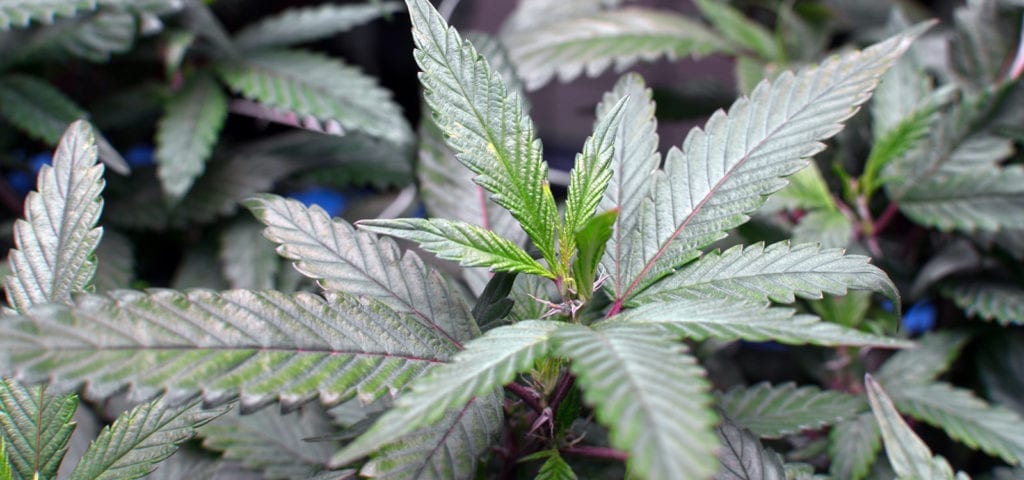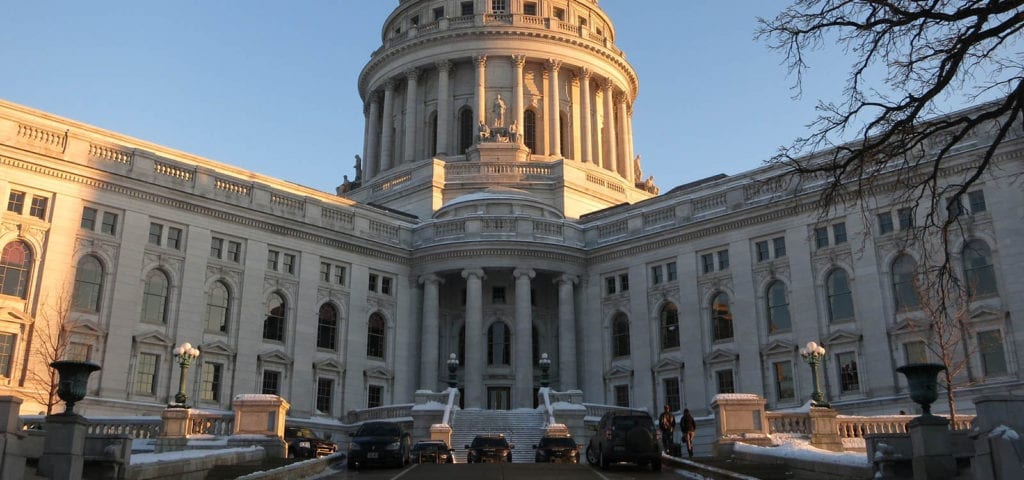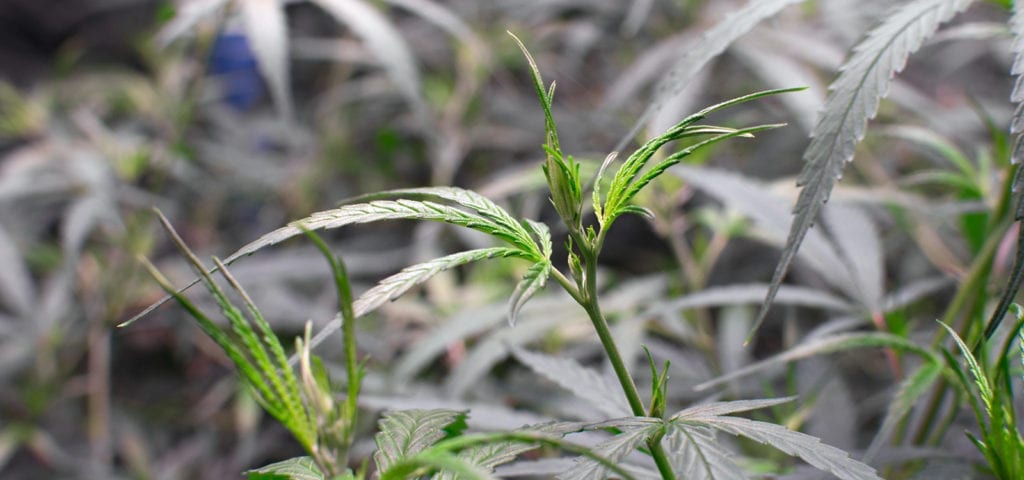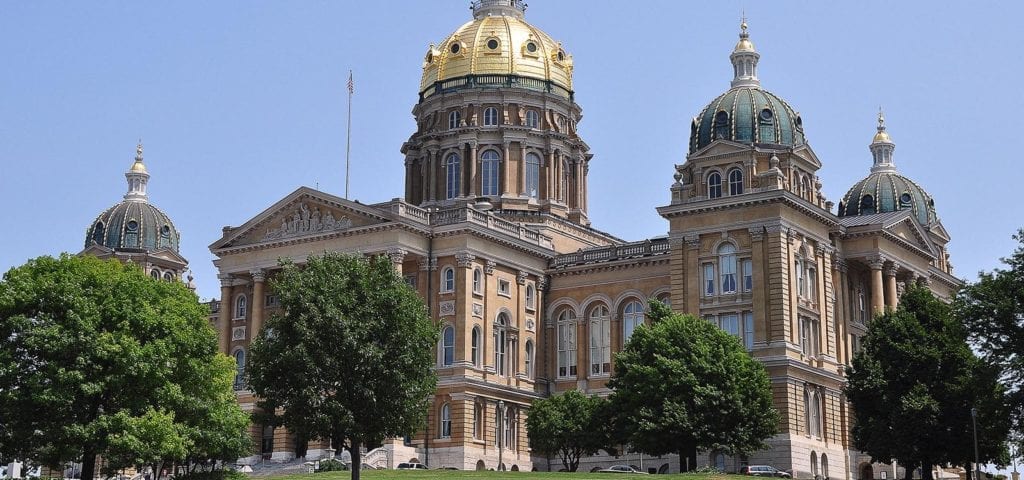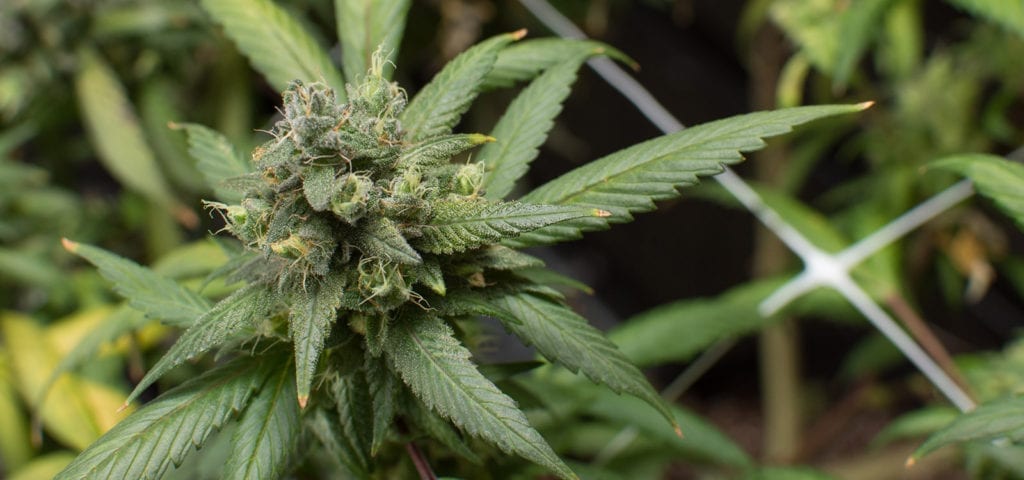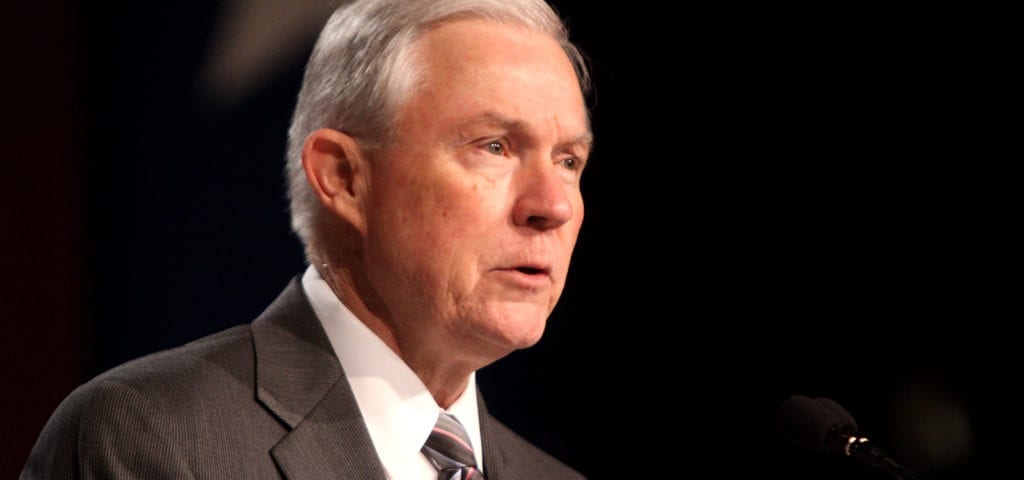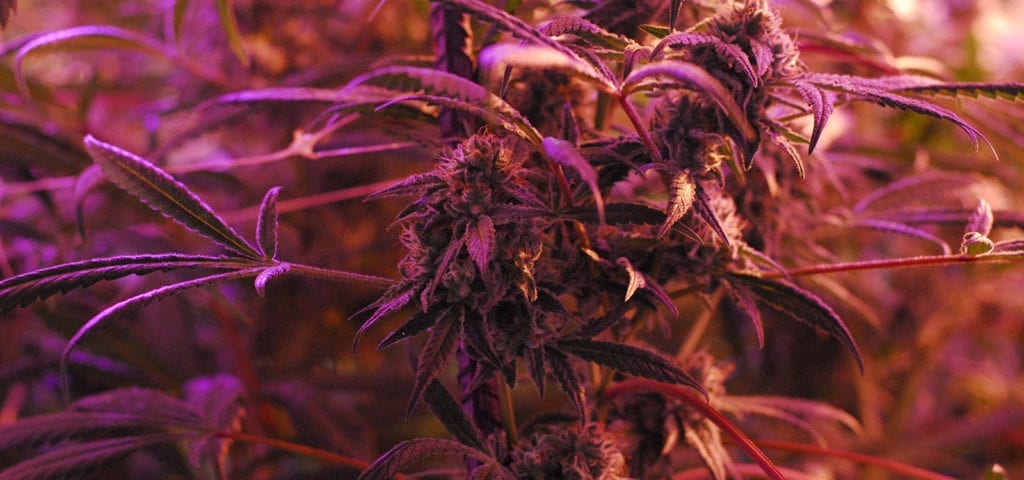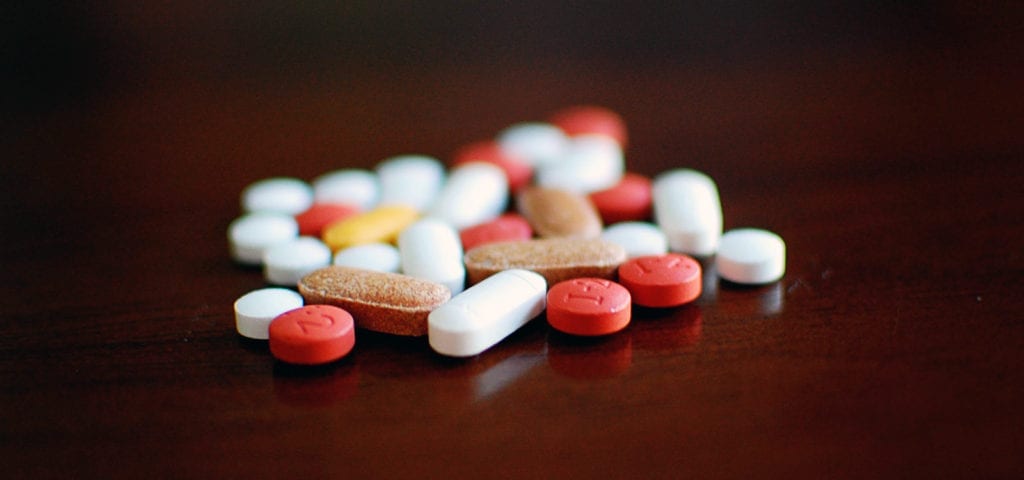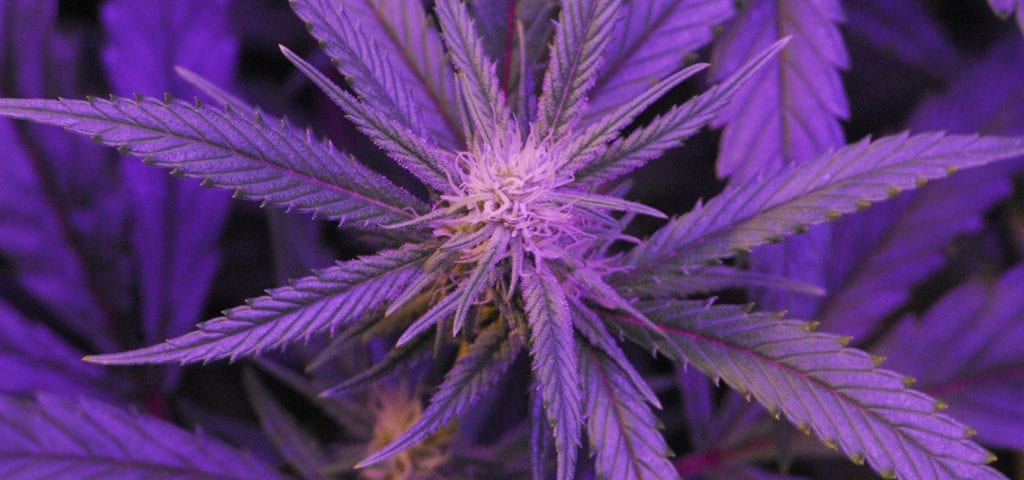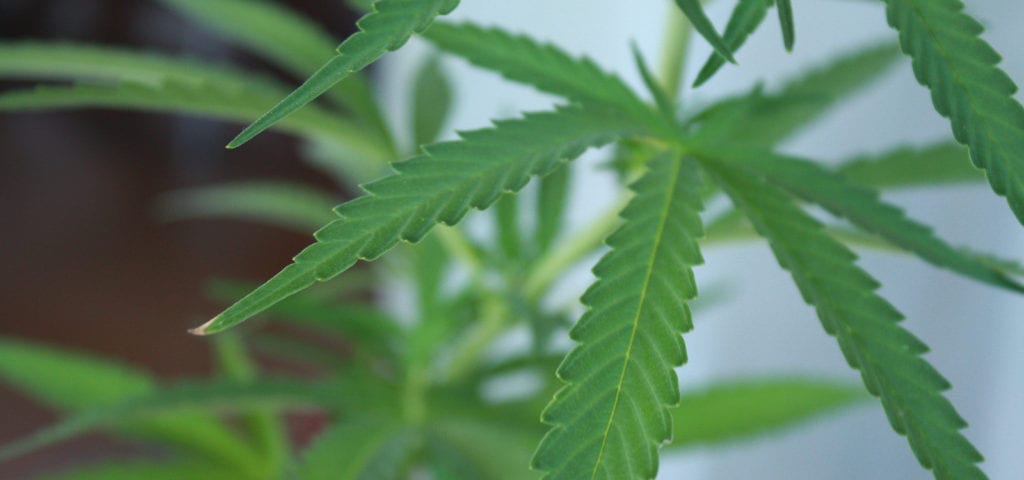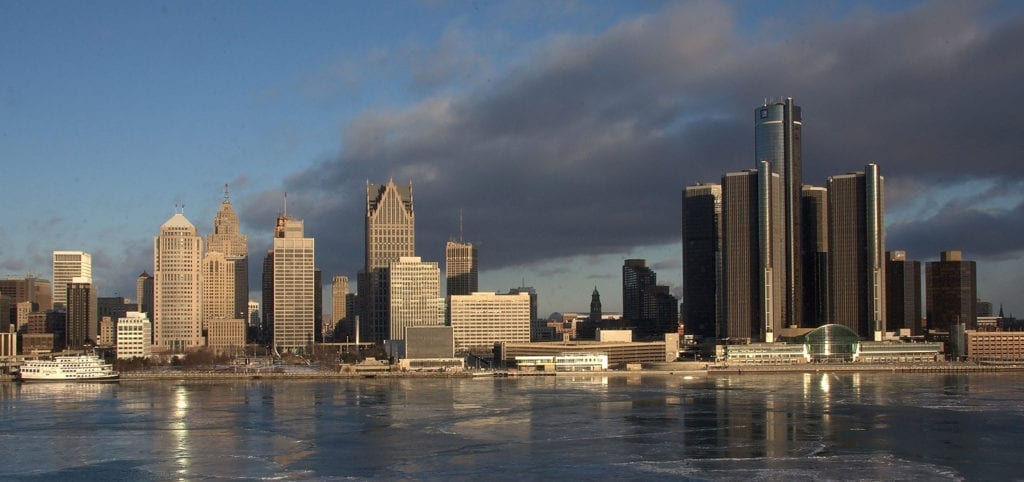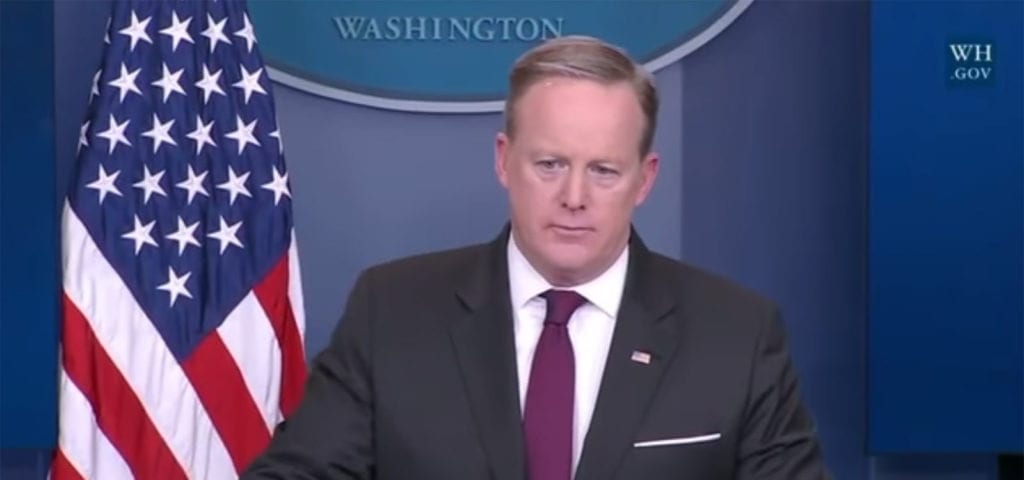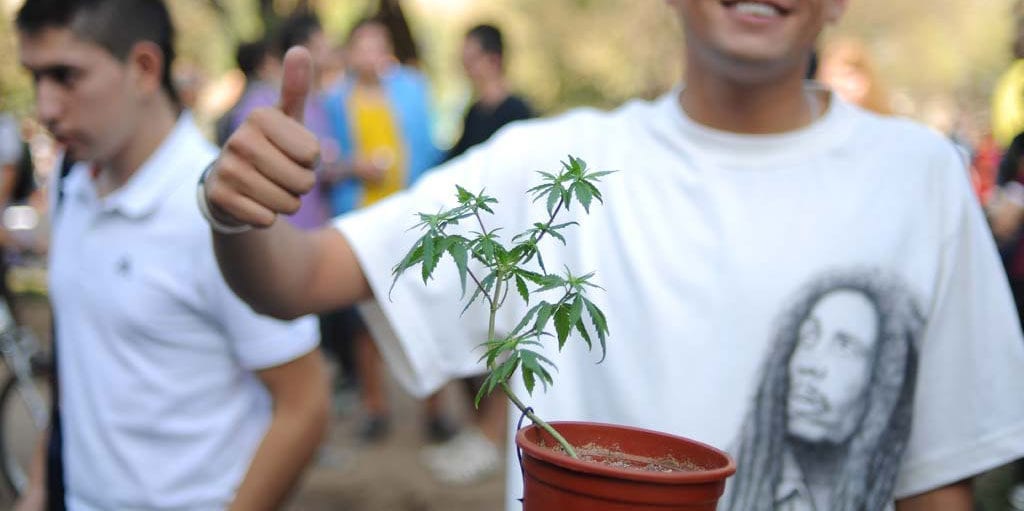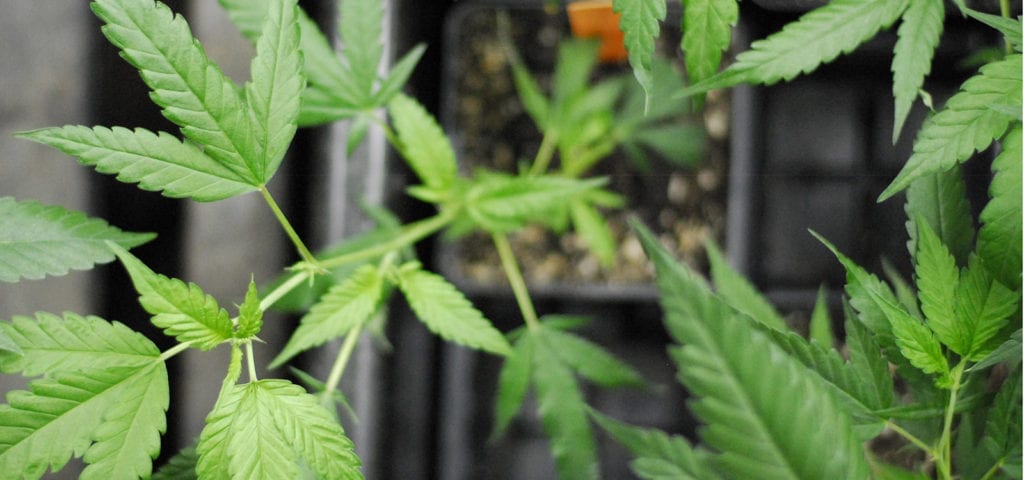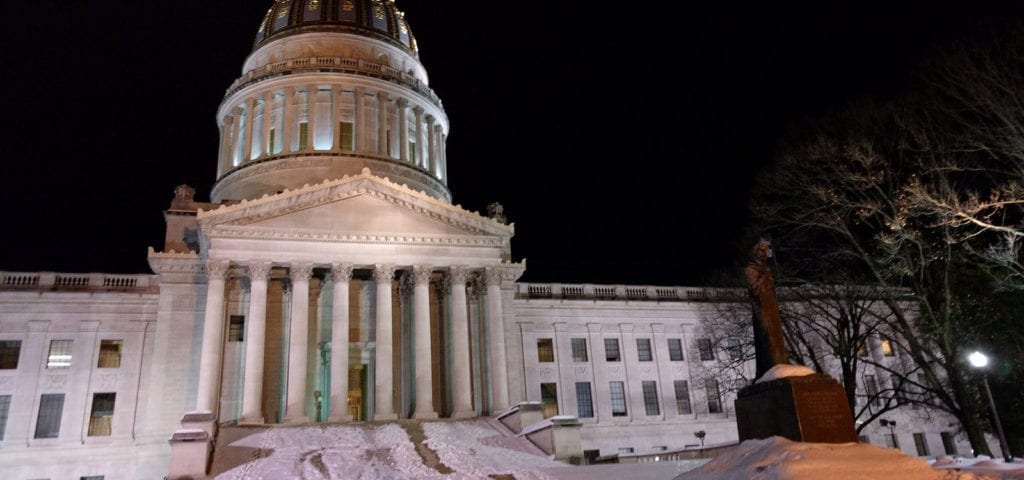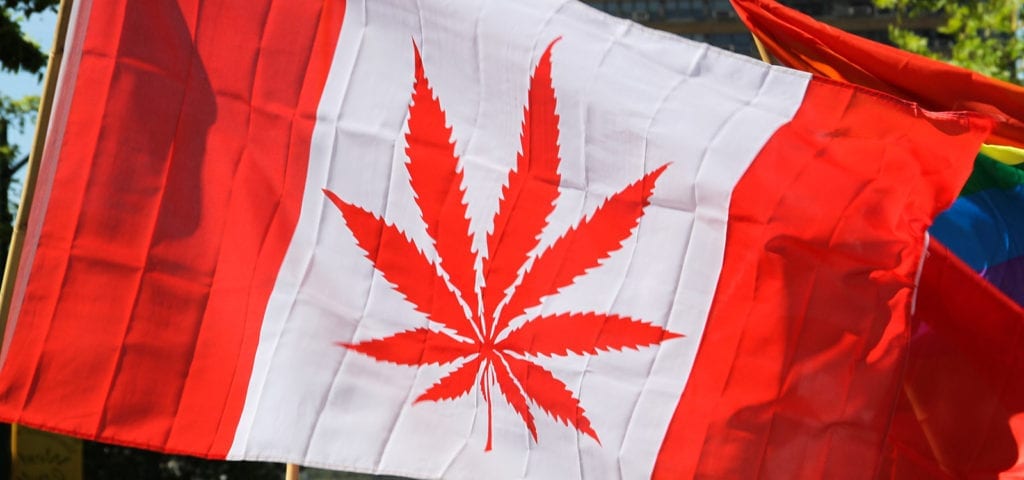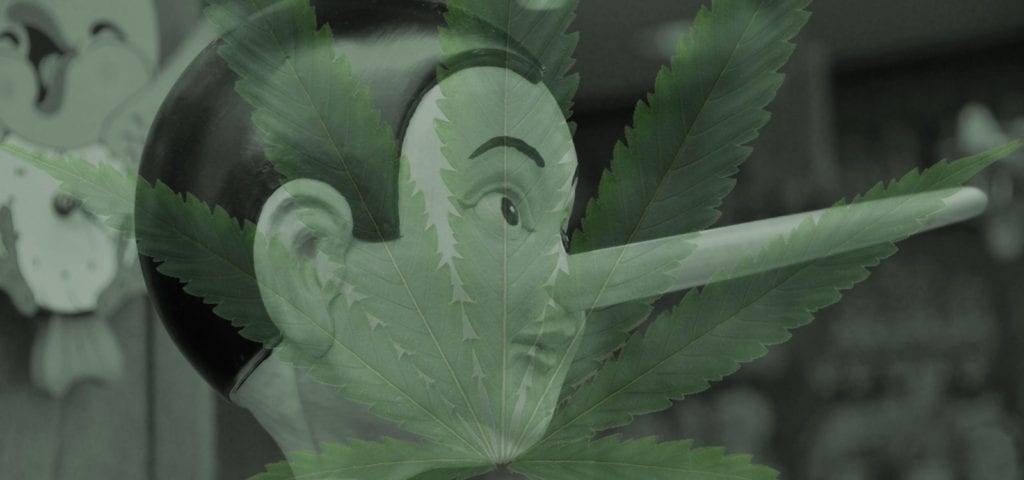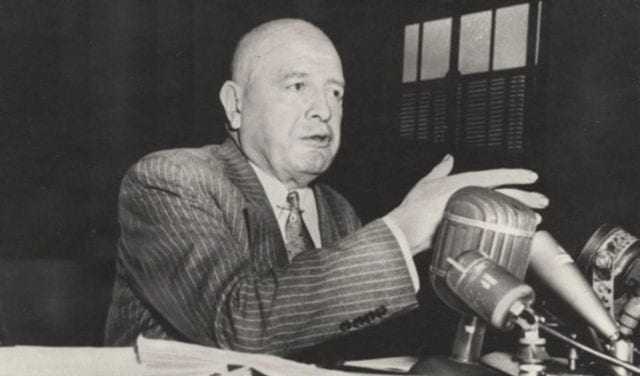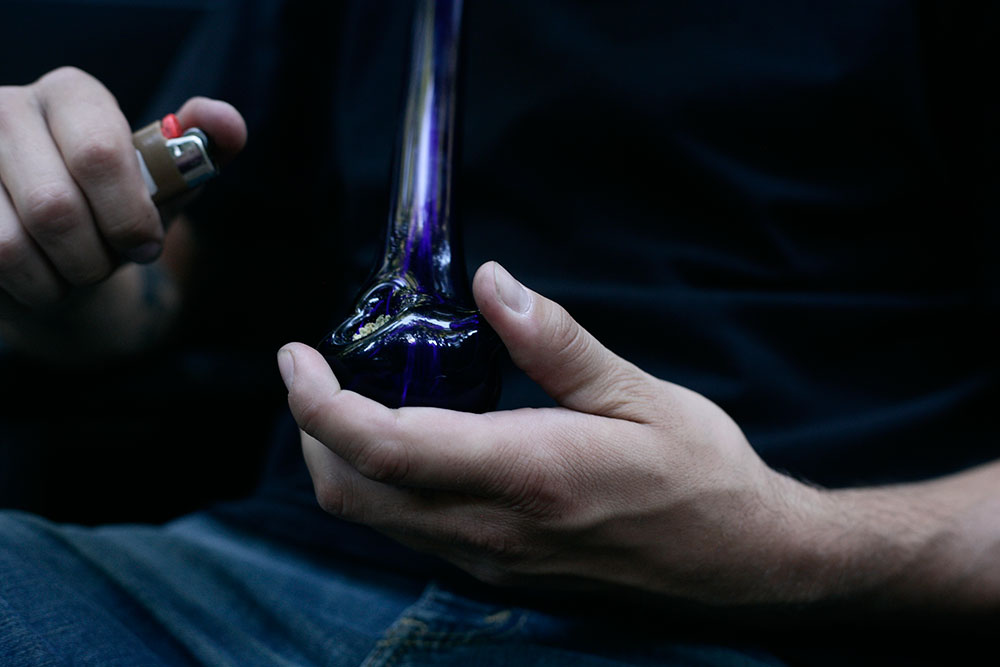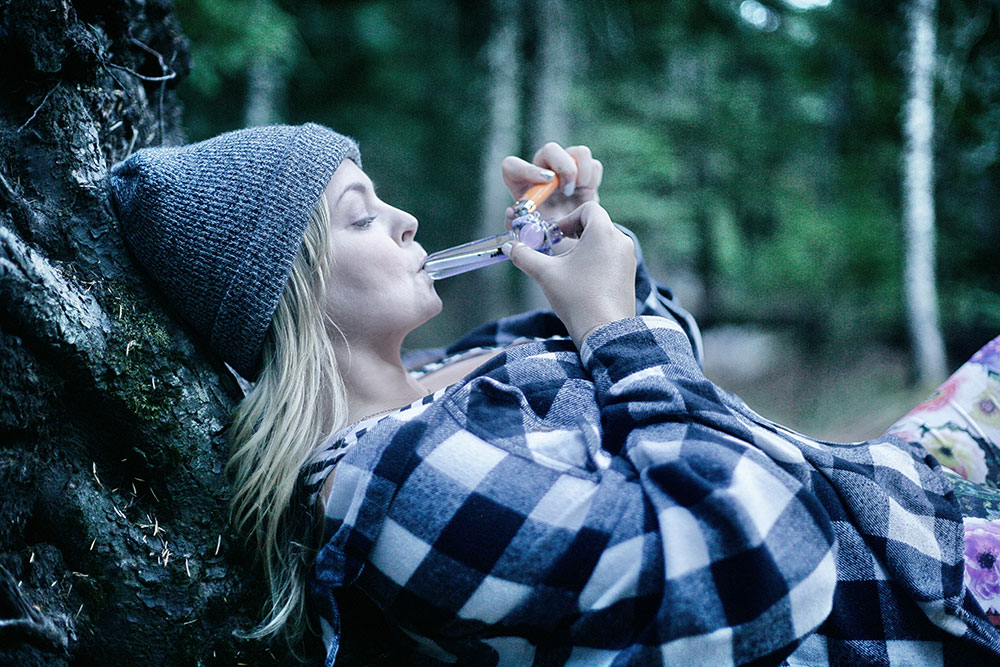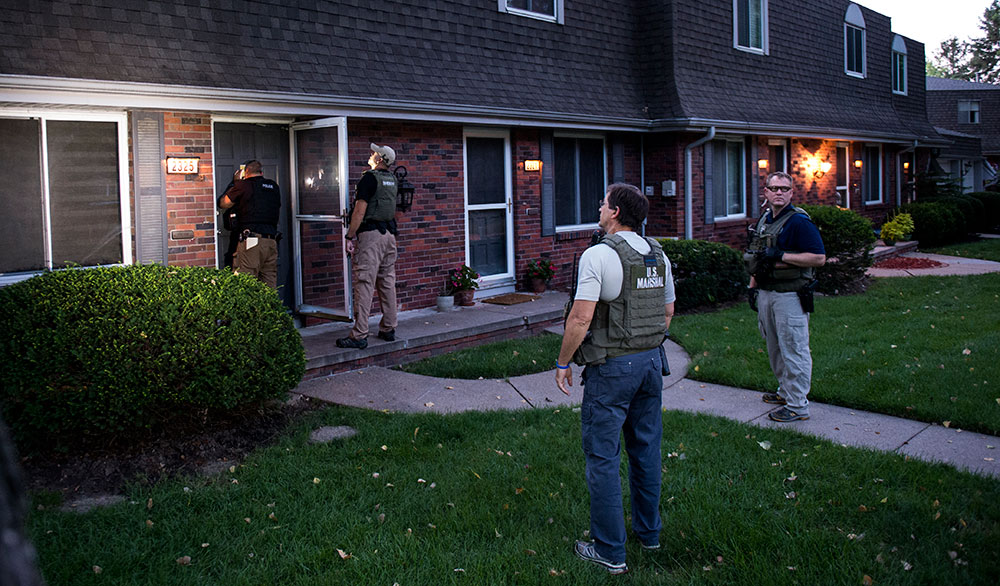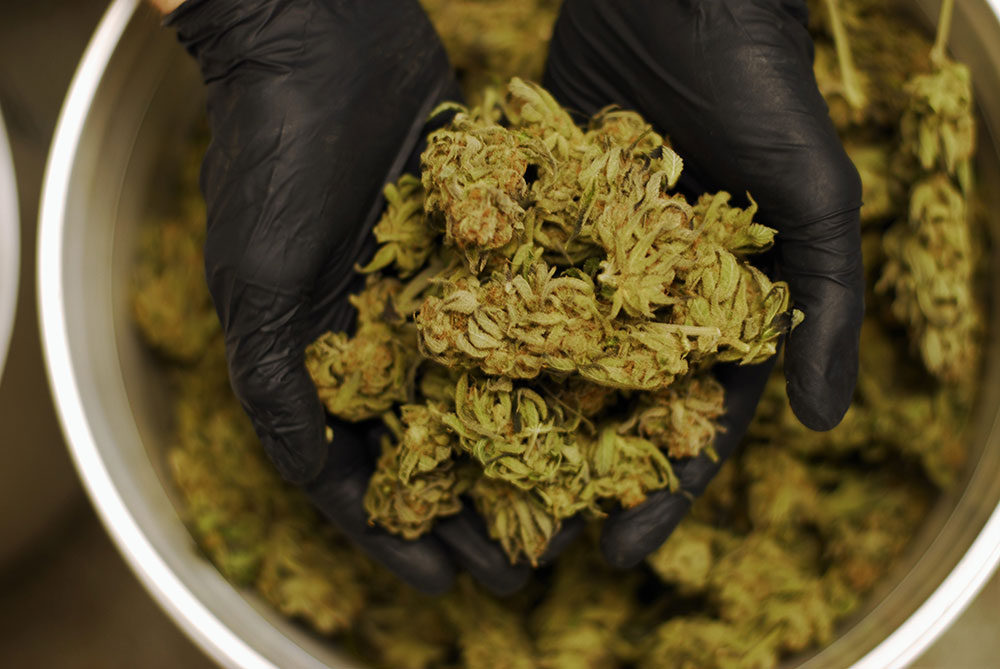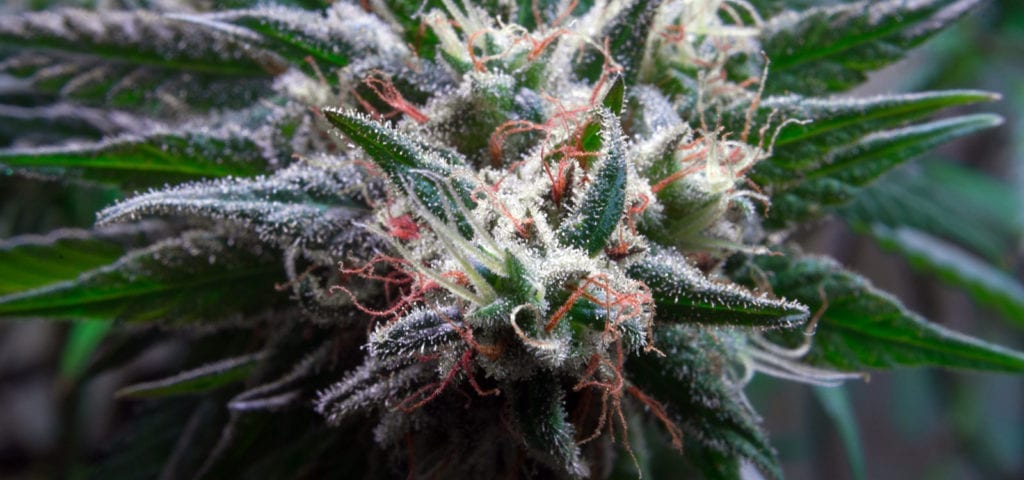Julianna Carella is the founder and CEO of two companies that create cannabinoid infusions. Her first company, Auntie Dolores, is an infused gourmet edibles producer that offers medical cannabis concoctions; her second company, Treatibles, has quickly become a national sensation for providing nutritious and wellness-focused CBD treats that have been enjoyed by animals of all shapes and sizes throughout the U.S.
In the following interview, our host TG Branfalt talks with Julianna about the founding of her two companies, the importance of providing a consistent dosage in any product with infused cannabinoids, lessons she picked up when making the swap from providing products meant for human consumption to products meant for animals, and much more!
Tune in and listen to the episode below, or keep scrolling down for a full transcript of this podcast.
Subscribe to the Ganjapreneur podcast on iTunes, Stitcher, SoundCloud or Google Play.
Listen to the podcast:
Read the transcript:
TG Branfalt: Hey, there. I’m TG Branfalt and you are listening to the Ganjapreneur.com podcast. The Ganjapreneur.com podcast gives us an opportunity to speak directly with entrepreneurs and experts who are working on the front lines of the industry to normalize cannabis through responsible business, education and activism. As your host I will try to do my best to bring you actionable information to help you plan, grow and manage your cannabis business.
Today I am joined by Julianna Carella CEO of Treatibles and Auntie D’s. How are you doing today, Julianna.
J. Carella: Great, thank you. How are you?
TG Branfalt: I am well. I am well. I’m very excited to talk with you today about your Treatibles product. I own pets. All of my friends own pets. I actually work in a bat conservatory once a week. So the idea of using CBD to treat animals is really really exciting for me to discuss. So but before we get into all that I want to start with your background. What did you do before getting involved in the cannabis industry?
J. Carella: Well, I’ve been a dancer and yogini for over 30 years so I always taught yoga and dance and Pilates and that kind of thing. I also have a business, a bookkeeping business so I had various clients that have a number of different types of business so I did their business bookkeeping and I did that for 15 years until I started Auntie Dolores in 2008.
TG Branfalt: And when did you decide to create a product for animals? What information were you armed with at that time?
J. Carella: So, when we started Auntie Dolores in 2008 nobody even knew what CBD was at that time. It wasn’t until about 2011 that we started to become more familiar with it. We asked some of our growers to start growing those strains and then after I realized that they started giving this cannabinoid to children and had great success I thought it would just be an excellent remedy for animals.
And knowing that animals have sensitivity to these cannabinoids because I had seen numerous dogs accidentally ingest THC products so I thought if they’re getting high off THC maybe they’ll also experience the amazing benefits of CBD and maybe we need to make a product for these animals so that they’re not getting high but they’re actually getting well.
And that’s how it all started. In 2012 we started with the product development. It took over a year to develop a product actually because we had absolutely no data to look at. There’s no research. All we know is what we see before us when we were giving CBD to different animals that we knew and the results were all good so that really inspired us to develop the best product we possibly could but also to start selling the product and then relying heavily on the feedback from the customers that started to purchase the product so that we could start to compile some data around what conditions can be successfully addressed. What ages of dogs, what breeds of dogs. I mean you name it, we ask all these questions and our customers give us a ton of great information.
TG Branfalt: So what was that testing process like? How did you figure out the dosage? Did you notice any side effects during the trials?
J. Carella: Yeah. Yeah so, the side effects because when we first started making the product we were using cannabis infused oil as opposed to the hemp infusion and with the cannabis CBD strains, although they were really amazing strains there was just a little bit too much THC in them.
So the first year of our product development we were using this cannabis infused product and some of the animals were getting high from it and that was obviously not the result we were looking for. And then it was a couple years later that we realized we just needed to switch to the hemp to eliminate the accidental psychoactivity that was happening with the cannabis oil.
But in terms of dosage, the way that we figured that out was we started off with a really low dose because it seemed to us, and now this is before it was confirmed years later, that dogs actually have more receptors in their brain than any other animal on Earth including humans. We could tell this because we had seen some animals accidentally ingest one or two milligrams of THC and become completely high from it. So in my mind, dogs have always been much more sensitive to all of these compounds. So we decided let’s just start low, see if a one or two milligrams is enough for a 10 pound dog and it just seemed to have such amazing results even in the low doses.
So what we did is we put together a feedback postcard. And we attached it to the bag and the first 2,500 bags were sold back in 2013, that feedback postcard was completed by the customer and returned to us. And that’s when we really figured out that one milligram for every ten pounds seemed to be across the board a good dose to start with. Of course, some animals have much more advanced pathology or maybe they have extreme anxiety and they might need double that but nonetheless we’ve seen that numerous animals respond to one milligram per every ten pounds of body weight. And that’s just been a real consistent thing that we’ve seen in our last three and a half years.
TG Branfalt: How do you keep up with that consistency?
J. Carella: Well the consistency is something that we learned when we started making the TCH infused human products. It’s something that we’ve been diligently working at for almost 10 years now and probably beyond that if you consider all of the experimentation that I did before I started the business. But it really is taking the time and the proper steps to make a consistent batter for the product and that just entails infusing the oil in another oil that’s gonna be completely uniform and mixed before any of the dry ingredients get mixed in. Obviously, there’s a lot more steps involved but the end result is just a very consistent product.
What we do is we randomly test various dog chews that come off the production line so that we can check for potency and we’ll take some from one tray and then we’ll take some from a completely different tray in a completely different part of the batter that’s being run through the machine. We do that all the time. We also test the oil that we use in the products and that has to be a certain percentage for our formula to come out where we want it. Its a lot of math. A lot of trial and error and a lot of lab testing.
TG Branfalt: So, aside from the CBD there’s also in your products CBN and CBG. What are the benefits of those cannabinoids for pets?
J. Carella: You know, that is a good question and we don’t have a ton of research on those compounds. We know that there’s non-psychoactive like CBD. CBN tends to be more of a sedative. It has that quality for all the animals so in some cases some of these animals have a hard time sleeping because they’re in pain. The CBN sort of promotes a better night sleep. The amount of CBN and CBG that is in product is nominal compared to the CBD content.
So we don’t really call those out too much because of that. It’s a nominal amount which we think helps provide more of an effective entourage effect because these compounds all do work better when there’s multiple compounds in the picture. So, we believe it’s adding some benefit. We don’t know exactly what though and in particular with CBG theres not many studies at all with CBG and animals. But they are non-toxic and they’re safe. We know that nobody’s dying from these compounds but there definitely needs to be more research.
TG Branfalt: What was the initial demand like when you launched the Treatibles and what trends have you seen emerge in the last several years?
J. Carella: Well, I think the first people that tried this product were people that had already been buying our human products and they were patients that go to dispensaries in California. So those were our first wholesale customers were the dispensaries that we were already working with. Many people that are cannabis patients, they were giving their animals some of our human products just because they were desperate to try anything for their animal.
So, part of why developed Treatibles is so that people would have something to give their animal that wasn’t high in THC. The response in the beginning was really phenomenal and obviously working with cannabis patients, they’re already very educated. They just needed more education about how to treat their animal because it is quite different than treating a human with cannabis.
But then when we started to work with pet stores and general stores and hardware stores and there’s just a host of different types of stores that are carrying the product now and that’s a different education process. We want to start from the beginning with those folks because they may not have the same depth of knowledge around cannabinoid science. We’re really big on education. We know that there’s a lot of misconceptions out there about cannabinoids and using them with animals and just their use in general, there’s a lot of misinformation and we’re really big on trying to cut through that misinformation and provide real information that’s based on true science and based on what we know to be true. We don’t make claims about the product.
We believe you can’t make any claims about the product but we certainly can’t deny the feedback and the reviews and the testimonials that come in on a daily basis from pet owners all over the world. So, this has been a huge learning process, not only for our customers but for us as well.
TG Branfalt: What are some of the most prevalent barriers do you think between those of us in the industry and the general public and specifically when it comes to dealing with pet health in this way, in this kind of natural way?
J. Carella: The biggest barriers to that would be, Big Pharma. Unfortunately if cannabis was placed on the CSA list, the controlled substance act list, it was placed on that list before CBD was discovered. Unfortunately what’s happened is that CBD is by default now also a schedule one narcotic and it was already asinine enough that THC sits on that list but it’s even more asinine that CBD could even be considered a schedule one narcotic in the same class as the other drugs that sit in that category. So, that would be probably the biggest barrier because that in and of itself is going to prevent a lot of the research that should be happening, in fact, in my opinion should have already happened had cannabis not been a schedule one narcotic.
So we’re dealing with something that is just on a fundamental level completely wrong and not based in science. And it’s purely political so having that obstacle before us, that is probably the biggest barrier.
TG Branfalt: So, this kind of goes hand in hand what you’re saying with the DEA and they recently released a rule that changed how they internally classify CBD oil. When that was announced there was a lot of brow beating about what this means for CBD. Specifically, CBD derived from hemp. So when that rule was released, I think it was about a month ago, was there any concern that there was gonna be a crackdown on CBD and that Treatibles might not be able to be produced anymore?
J. Carella: Well there’s always concerns about that for various reasons but I just do want to clarify something that seems to … You know this is not the first conversation I’ve had where this clarification needed to be made. But the classification was not specifically about CBD, it was specifically about cannabis extracts.
And this new ruling was simply and administrative code that was created so that cannabis extracts can be classified more successfully. What didn’t happen which seems to be something that the general public right now believes happened but didn’t actually happen was that the DEA decided to classify CBD as a schedule one narcotic. Actually it was already considered a schedule one narcotic by the DEA. But, it also should be noted, this takes an act of congress to actually classify something as a schedule one narcotic and as I stated before, cannabis or more specifically because they never use the term cannabis, marijuana is a schedule one narcotic.
But the CBD that’s in our products does not come from marijuana, it comes from hemp and it’s exempt from these rules because of the Farm Bill. So, this is a classic example similar in any kind of marijuana law. You’ve got branches of the government that have different opinions and different laws and these laws are in conflict with one another. So, unfortunately for a company like us it would actually be impossible to be completely compliant because of all these laws that conflict with one another.
And because we have attorneys that just filed a lawsuit against the DEA for this very reason because we feel that they are violating the Farm Bill. So it’s once again, a lot of misinformation out there, a lot of media hype and a lot of fear. And sadly, really what needs to happen is the DEA should be focusing on the opiod epidemic or maybe even all of the black market drug activity that still exists.
Obviously CBD products for them to actually regulate it in that way would be a very expensive endeavor and it would be a big waste of time when apparently they’ve just got their hands full with true problems like the opiod epidemic and how many people are actually dying from opioid addiction and abuse. No one’s died from cannabis addiction or abuse. They just maybe got fat and laughed too much. They ate too much food when they had the munchies or maybe they had a psychotic episode that lasted 24 hours because they ate too many edibles but nobody’s ever died from weed.
TG Branfalt: So, I wanted to kind of switch gears a little bit and go back to talking about the CBD. According to all the anecdotal evidence, as we both know there’s not a whole lot of research on any of this but CBD products, they’ve been shown to reduce and eliminate seizures, combat anxiety, treat arthritis and pain, increase appetite. These are both similar in humans and animals so although humans use it not exclusively CBD in many cases. Are there or have you seen or heard of any benefits that are exclusively for pets such as coat when they use CBD?
J. Carella: Hmm. I wish I could answer that with more certainty. But like I said we’re learning so much every day ourselves. We often have pet owners calling in saying, “I bought this medicine for my dog’s anxiety but I notice that she’s walking better too. It seems to be helping hip dysplasia.” Oh okay, great. Good to know. We didn’t know until we started hearing from numerous pet owners that their animal’s hip dysplasia was subsiding. As far as anything specific just to animals I have not come across anything as of yet but I wouldn’t be surprised if these things reveal themselves in the coming months and years.
TG Branfalt: And that’s something I hear a lot in my interviews is that more research is needed. On that note, we’re gonna take a short break this is the Ganjapreneur.com podcast. I’m TG Branfalt.
Commercial: This episode of the Ganjapreneur.com podcast is made possibly by name.com, a global provider of domain name, web hosting and email services. Every successful cannabis business needs an online presence and every successful online presence begins with a domain. From your website to your email address, a good domain is easy for your customers to remember, it looks nice on a business card or billboard, and it reflects the true identify of the project it represents.
It’s important to reserve your domain early on when you are starting your business as you may find that the .com address for your preferred brand or concept has already been taken. If somebody has already purchased the ideal .com for your business they might be willing to sell it but if they aren’t you may have to get creative with one of the new alternate domain extensions such as .co, .club, .shop or even .farm. Reserve your domain name today at name.com/Ganjapreneur.
If you are a domain name investor or venture capital firm interested in acquiring or advertising premium cannabis domains go to the Ganjapreneur domain market to browse a wide variety of names including strains.com, cannabismedia.com, mj.com, and countless others. Discover branding opportunities for your next start-up and learn about listing your premium domain names for sale at Ganjapreneur.com/domains. Sponsored by name.com.
TG Branfalt: Welcome back to the Ganjapreneur.com podcast. I’m you host TG Branfalt here with Julianna Carella, CEO of Treatibles and Auntie D’s. So Julianna, why don’t you tell our listeners where your hemp comes from.
J. Carella: We started using Colorado ground hemp probably about 6 mounts ago. We did make the switch. We wanted to be able to say our product was 100% made in the USA and unfortunately a lot of the CBD that is coming through Europe actually is cultivated and extracted in China where we really want to stay away from any Chinese hemp, due to the soil being contaminated with heavy metals and bio-contaminants and all kinds of stuff. So, we are very excited to be working with Colorado cultivators now.
TG Branfalt: Were there any hurdles when you did eventually make the switch over?
J. Carella: Um, yeah. There are certainly hurdles with all of this. You know, I wouldn’t say there was any necessarily hurdles with regard to switching from a European to a domestic supplier but as with all of our suppliers there’s a due diligence period there so that we can make sure. Unfortunately, this is not a regulated industry so we can’t just take the cultivator’s word for it. We have to make sure that we’re looking at the certificate of analysis and that we do our own third party testing on the material before we use it. And that every batch that we get from them is reading the same lab results and all of that kind of thing. It’s a constant due diligence process that doesn’t really end because we need to make sure that they understand what type of quality our customers expect.
And consistency is a huge part of it. These products only work when they are consistently made and our whole business is resting on the fact that the product actually works and it works well so we want to make sure we don’t mess up a good thing by making changes that might deteriorate the quality of the product.
TG Branfalt: So, vets, they’re not allowed to prescribe or recommend cannabis products for pets, is that correct? Even in medically legal states?
J. Carella: Are you talking about veterinarians?
TG Branfalt: Yes.
J. Carella: Yeah, as of now, it is considered illegal for them to prescribe cannabinoids. I think that’s partly because of all of the hysteria around the DEA statement recently. And unfortunately the system in this country is such that a product needs to go through a very strict research before it can become FDA approved but as we know the FDA approval process for something like a cannabinoid is a long convoluted road. Before we’re gonna see any resolution there. So unfortunately it doesn’t look like the FDA would approve cannabinoids any time soon but who knows, maybe I’m wrong about that. I hope I’m wrong.
TG Branfalt: Is this something that maybe lawmakers in legal states should take up, specifically allowing vets to prescribe cannabinoids to pets?
J. Carella: I think given the way that CBD is classified now and given what we know about it being safe and non-toxic and perfectly good for animals of all kinds, absolutely some exceptions should be made and there should be a clear path to researching this, developing products from it and getting the products out to the market where its desperately needed. Let’s not forget that these types of products are completely fueled by a true demand. We didn’t have to go and try to convince a bunch of pet owners to try this.
This is something that they sought out on their own because there is a real dissatisfaction with a lot of the pharmaceutical options available to animals. And we hear it time and again that the side effects often create more problems than the original problems that they’re trying to address. So, yeah we really do need some exceptions to be made so that a clear path to research is available.
TG Branfalt: So, according to pet food industry report, the pet market’s worth about 15 billion. Arcview market research suggested the cannabis industry will reach 20.2 billion by 2021. Crest Hill Pharma company traded on the Australian securities exchange, they just received EU approval to sell products aims at pets although they have to deal with some import/export stuff before that actually happens. Can you peer in your crystal ball for me? What might you anticipate the cannabis product for pets market to reach by say 2020?
J. Carella: Wow, that’s a good question. Depending on all the legal issues that are very murky and how they may or may not get resolved, I think the potential is huge. I think it can certainly be a multi-billion dollar industry. Especially when you take into account how many conditions CBD and cannabinoids actually successfully address and so there’s just in my opinion, no other substance on Earth that has been discovered yet that actually treats cancer, epilepsy, anxiety, arthritis and all these other conditions. So that in and of itself I think creates a lot more product development opportunities and obviously more business.
And sadly, there’s just so many damn sick animals out there. Which I can’t help but wonder how all these animals are getting so sick. When I was a kid, dogs weren’t getting cancer and epilepsy and we love helping animals with these kind of advanced pathology and horrible illnesses especially when the pet owners have exhausted all other resources that have been pharmaceutical options offered by their veterinarians. There’s a huge, huge need for these types of products sadly because of how many sick animals exist out there. But I do think it’s a huge market potential. No doubt.
TG Branfalt: Are you seeing more people who aren’t cannabis users look at your products for their pets despite them not using cannabis themselves?
J. Carella: Absolutely. One of the really interesting things that happened is we’ll get orders from areas of the country where there are no cannabis laws. And they’re orders from people that would never think to even consume a cannabis product themselves but like many other pet owners they’ve exhausted all their other resources and no other medicine was working for their epileptic animal or their arthritic dog. So they try the product for their animal, they see the results because there’s no placebo effect going on here. Its very, very evident when an animal that’s in pain is feeling better and if they’ve just been given a dose of Treatibles and 15 to 30 minutes later they’re not limping anymore, it’s indisputable.
What ends up happening is we get a phone call from the pet owner saying, “I can’t believe how well this works. Can I eat the dog biscuits?” “I’ve got a sore back will it help?” Or “I don’t sleep at night my arthritis is killing me, can I try the dog biscuits?” And that’s when we point them to our human edibles line because of this phenomenon with CBD, we’ve developed more CBD edibles for humans now because of that demand. And so, now we’ve been able to provide products to the pet owners as well as the pets.
TG Branfalt: All right. We gotta take one more short break. When we come back we’re gonna find out if you’ve ever eaten one of your own Treatibles. This is TG Branfalt at the Ganjapreneur.com podcast. We’ll be right back.
Commercial: At Ganjapreneur, we have heard from dozens of cannabis business owners who have encountered the issue of canna-bias which is when a mainstream business, whether a landlord, bank or some other provider of vital business services, refuses to do business with them simply because of their association with cannabis. We have even heard stories of businesses being unable to provide health and life insurance for their employees because the insurance providers were too afraid to work with them.
WE believe that this fear is totally unreasonable and that cannabis business owners deserve access to the same services and resources that other businesses are afforded. That they should be able to hire consultation to help them follow the letter of the law in their business endeavors. And that they should be able to provide employee benefits without needing to compromise on the quality of coverage they can offer.
This is why we created the Ganjapreneur.com business service directory. A resource for cannabis professionals to find and connect with service providers who are cannabis friendly and who are actively seeking cannabis industry clients.
If you are considering hiring a business consultant, lawyer, accountant, web designer or any other ancillary service for your business go to Ganjapreneur.com/businesses to browse hundreds of agencies, firms and organizations who support cannabis legalization and who want to help you grow your business. With so many options to choose from in each service category, you will be able to browse company profiles and do research on multiple companies in advance so you can find the provider who is the best fit for your particular need.
Our business service directory is intended to be a useful and well maintained resource which is why we individually vet each listing that is submitted. If you are a business service provider that wants to work with cannabis clients you may be a good fit for our service directory. Go to Ganjapreneur.com/businesses to create your profile and start connecting with cannabis entrepreneurs today.
TG Branfalt: Hey, welcome back to the Ganjapreneur.com podcast. I’m TJ Branfalt here with Julianna Carella, CEO of Treatibles and Auntie D’s.
So have you ever tried a Treatible?
J. Carella: Absolutely! When we were developing the product there was a lot of taste-testing that happened and you know, they’re human grade ingredients so you can definitely enjoy them. They actually taste like graham crackers. They’re delicious!
TG Branfalt: And then, what about using these for cats which a lot of them aren’t 10 pounds so how do you figure out the dosing and will they even eat this sort of thing because cats are picky and jerks.
J. Carella: Yeah, I mean we’ve got quite a lot of cats using the product before we released the new tincture bottle that we have which is really suitable for small animals and cats, we actually were selling the dog bones to many cats. And what the pet owners were doing was breaking up the treat into the food and mixing it around with the wet food. But now that we have the tincture bottle with a cat you just have to give them a few drops. And yeah. It works really well.
TG Branfalt: Are there any prevailing rumors about cannabis for pets that you would like to debunk?
J. Carella: Where there’s the prevailing rumor that folks that understand the meaning of entourage effect, they know that humans often need a little THC along with CBD and a combination of various cannabinoids does provide a superior result. But a lot of people think that animals also need THC but the fact is that THC can actually be toxic to many animals especially dogs being that dogs have more receptors in their brain than any other animal and they can actually develop static ataxia. So, when people become interested in giving a cannabis product to their dog in particular they should note that THC can actually be toxic.
So, if people tell you, “you need to have THC in your cannabis product if it’s for a dog,” that is actually a myth.
TG Branfalt: Okay. Is there any animal that … any common pet that you wouldn’t recommend this product for? You know, I’ve learned not to let my snake in contact with any sort of THC smoke or anything like that because he could eat himself. So, this is true. They get confused because they have tiny brains so they actually could eat themselves but you know, is there any animal that you would say, “Eh, you probably shouldn’t give this to that creature.”?
J. Carella: Yeah. I have not come across any animal that didn’t benefit from CBD. We’ve seen numerous animals ordering our product and using it including horses and cows and pigs and birds and rabbits and hamsters. All animals have an endo-cannabinoid system but we definitely need to learn more about how their endo-cannabinoid system works, which cannabinoids that have not been determined to be safe, what is it about THC and why can it be toxic? How is it toxic?
There’s just so much more that we still need to learn and research.
TG Branfalt: So finally, I like to end these interviews by asking the question, “What advice might you have for people aspiring to get into the cannabis industry?”, those looking to get jobs in it, those looking to invest in it, those looking to open up their own businesses?
J. Carella: There’s no end to the opportunities that exist right now but where I think entrepreneurs really do well is to take a look at their local market. A lot of cannabis businesses are gonna be confined to their medical cannabis state. And there’s just a myriad of different laws in different states and they’re all very different.
So you have to model your business after what you can achieve and still be in compliance with those state regulations. And so, that could be very different in California than in Oregon or even in Illinois or any of these states. So it’s really good to look at what the local regulations dictate and make sure that your business model is going to be able to comply with those regulations.
TG Branfalt: And, could you tell the listeners how they could go about getting Treatibles, what states they might be able to buy them in person?
J. Carella: Well we sell Treatibles in pet stores across the country. We do have a store locator on our website. The website is treatibles.com, T-R-E-A-T-I-B-L-E-S .com. And people can also order directly from our website. We ship all over the world. And feel free to send us an email at info@treatibles.com. We’re happy to answer any questions you might have. You can also call us. Our number is listed on the website. We actually pick up the phone when people call and we’re happy to talk to anybody if you’d like to know more.
TG Branfalt: And nobody has to worry about the Feds knocking on their door by ordering Treatibles?
J. Carella: No, they don’t have to worry about that.
TG Branfalt: Alright, well I wanna thank you so much for this opportunity to chat with you. Thank you so much for kind of being on the front lines of helping sick animals get well. That’s really incredible.
J. Carella: Thank you so much and I’d love to send you some of the tincture for your cat if you like. Feel free to send me your address.
TG Branfalt: Oh she’s mean, she could use it. Alright, thank you so much Julianna.
J. Carella: Thank you.
TG Branfalt: All right, you can find more episodes of the Ganjapreneur.com podcast at the podcast section of the Ganjapreneur.com and in the Apple iTunes store. On the Ganjapreneur.com website you will find the latest cannabis news and cannabis jobs updated daily along with transcripts of this podcast. You can also download the Ganjapreneur.com app in iTunes and Google Play. I’ve been your host, TG Branfalt.
